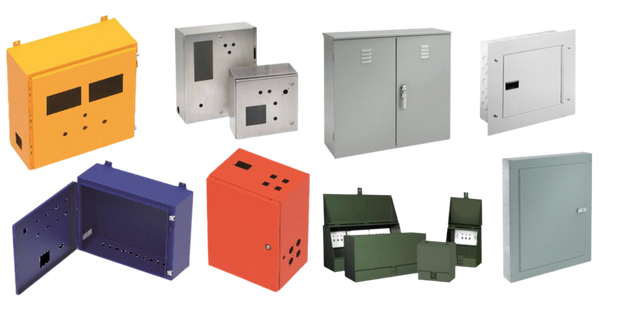Materials
Selecting the Right Materials for Sheet Metal Product Manufacturing
In the realm of sheet metal manufacturing, selecting the appropriate materials is crucial, affecting both the production process and the quality of the finished products. Companies like Bull Metal Products, which specialize in metal cases, enclosures, boxes, cabinets, housings, and bins, must choose materials that fulfill design specifications, durability, cost efficiency, and material workability.

Understanding Sheet Metal Materials
Sheet metal materials vary in strength, durability, corrosion resistance, and aesthetic appeal. The primary materials used in sheet metal manufacturing include:
1. Steel: Commonly used due to its high tensile strength and durability. Steel is an excellent choice for products requiring robust construction. It can also be coated or treated to enhance corrosion resistance.
2. Stainless Steel: Known for its anti-corrosive properties, stainless steel is ideal for outdoor applications or environments where exposure to chemicals is inevitable. Although more expensive, it offers lower maintenance over the product's lifetime.
3. Aluminum: Favored for its strength yet lightweight nature, aluminum is perfect for applications where weight is a factor, such as in the aerospace or automotive industries. It is also naturally corrosion-resistant and can be easily machined and formed.
4. Copper: Used for its excellent electrical conductivity, copper is ideal for electrical enclosures and components. It also provides good corrosion resistance and has a distinct natural color that can be aesthetically pleasing.
5. Brass: Similar to copper, brass is used for its decorative aesthetics and corrosion resistance, commonly applied where visual appeal is crucial.
Factors to Consider in Material Selection
Several factors influence the choice of materials for sheet metal products:
- Product Requirements: Base material selection on the intended use, environmental conditions, durability needs, chemical exposure, and electrical considerations.
- Machinability and Formability: Consider how easily materials can be worked with, including their ability to be cut, bent, and shaped as per the design requirements.
- Durability and Strength: Choose materials based on the expected stresses and lifespan of the product. High-strength materials like steel are suited for heavy-duty applications.
- Corrosion Resistance: For products exposed to harsh environments, opt for materials with excellent corrosion resistance such as stainless steel or aluminum.
- Aesthetic Considerations: For products where appearance is key, materials like brass or copper might be preferable, possibly with specialized finishes.
- Sustainability: Consider the ecological impact, including the recyclability of the material and the environmental footprint of its production process.
- Cost: Material selection should also take into account the overall budget and economic feasibility of the product.
Conclusion
For manufacturers like Bull Metal Products, effective material selection is pivotal for creating durable and functional products while maintaining cost efficiency and meeting customer aesthetic demands. This requires comprehensive knowledge of metal properties, market demands, and product-specific needs, ensuring that their products stand out in the competitive market of sheet metal fabrication.